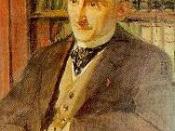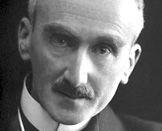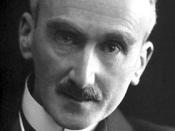Henri Bergson in his book Creative Evolution provides an alterative outlook to Darwin's Theory of Evolution. In it, he claims that life developed from an initial force to an unknown end. Unlike Darwin's idea of a planned end, Bergson suggests that "evolution will...prove to be something entirely different from a series of adaptations to circumstances...entirely different also from the realization of a plan of the whole...it is one thing to recognize that outer circumstances are forces evolution must reckon with, another to claim that they are the directing causes of evolution" (Bergson, 101). Bergson sees life as the force that allowed movement to begin, and he claims it takes diverging paths with no particular ends (Bergson, 102). It is on one of these diverging paths that Bergson introduces an interesting concept about instinct and intellect.
First, it is necessary to give a brief synopsis of the origins of life as Bergson saw it.
Most people see life in two forms: vegetable and animal. Bergon suggests that originally these two were one. One chose immobility and developed the ability to receive its nourishment from the soil and the other chose mobility in order to be able to move about to get its nourishment either through plants (the immobile) or through other animals (the mobile). Each evolved the necessary organs or tools to feed itself i.e. photosynthesis in the plant or carnivorous teeth in the animal. But evolution is not stationary and eventually the animal began to diverge as well. In order to avoid becoming dinner to another animal, it had to develop protections. Some protections reduced mobility others increased mobility. The shellfish developed its shell, but the cheetah developed speed. The strain that chose mobility again diverged. Up until now all of the weapons of protection were integral to the...



Nice conclusion.....
I really enjoyed reading your essay, and you rounded it off very well at the end. Good submission!
0 out of 0 people found this comment useful.